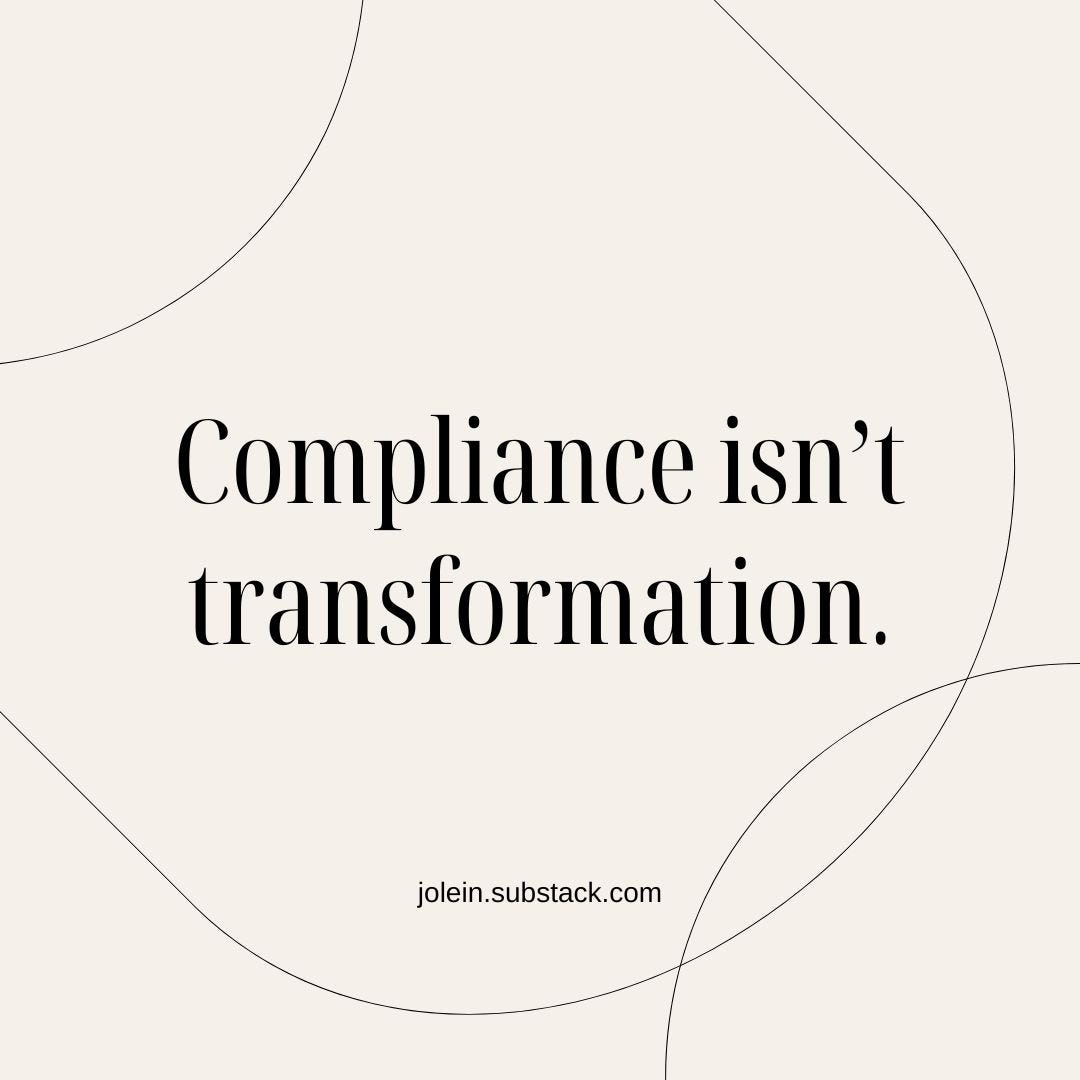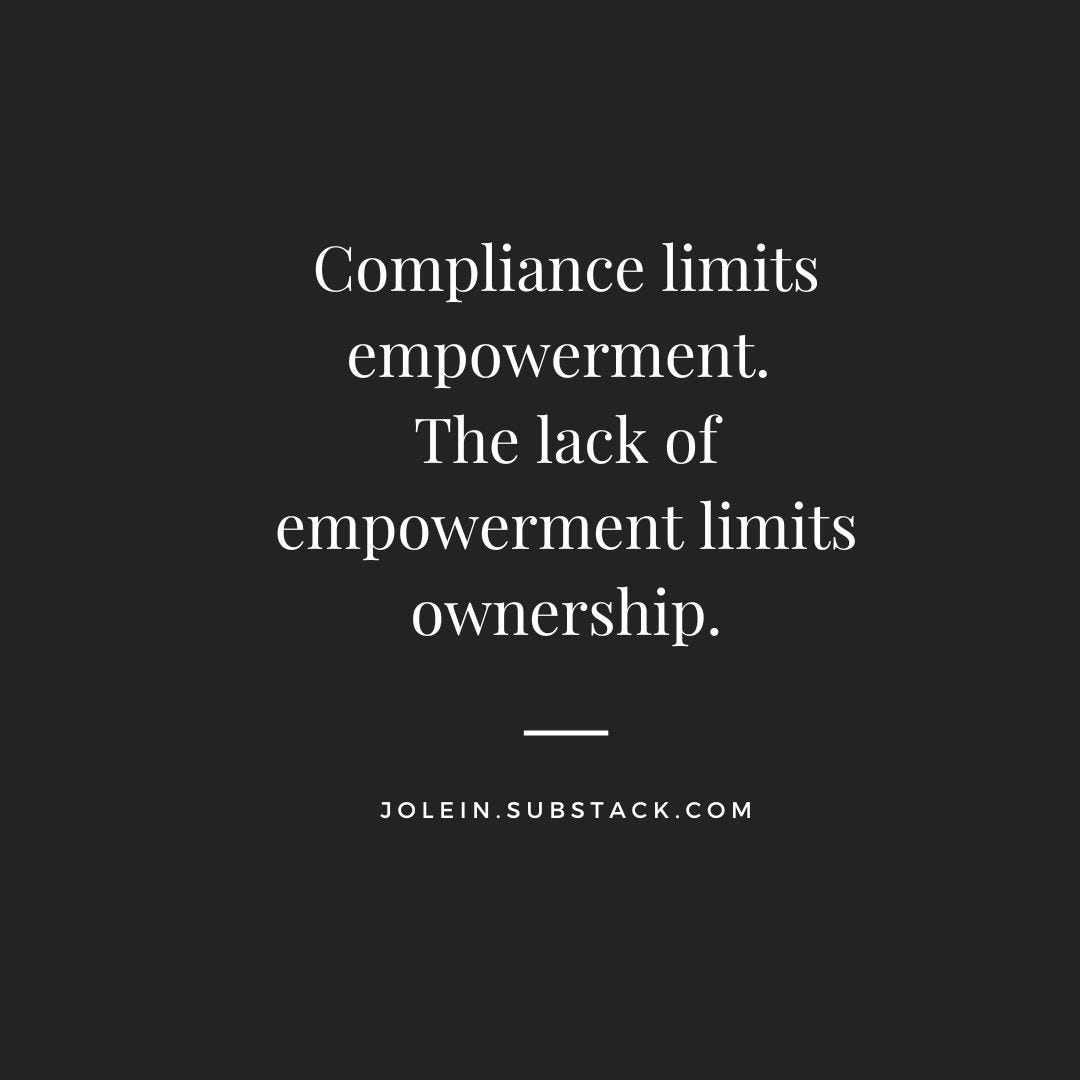If we want transformation, let's start with staff meetings
Our beliefs about kids and families matter for outcomes so we need to start talking about them.
If we want to change how we think about our students and families, then our staff meetings must look radically different. They must become spaces where we challenge assumptions, deepen empathy, and reframe how we talk about and ultimately serve our students.
Educator beliefs profoundly influence student outcomes, and research confirms that what teachers believe about their students shapes their performance, motivation, and long-term success. If we want to create schools that truly nurture potential, we must intentionally shape those beliefs. That work begins in the spaces where teachers and school leaders come together—our staff meetings.
From Compliance to Transformation
Too often, staff meetings are structured around logistics and compliance. We discuss data, review policies, and manage schedules. But if we’re serious about changing beliefs, we need to move beyond the transactional. Staff meetings must be spaces of reflection and dialogue, not just information dumps.
The Research Is Clear: Beliefs Matter
The way educators perceive students impacts everything from performance to motivation. Studies show that teachers with a growth mindset—who believe intelligence and abilities can be developed—see better outcomes in student achievement. On the other hand, educators with limiting beliefs can unintentionally stifle potential, limiting growth opportunities.
These limiting beliefs don’t exist in brains—they shape how educators execute curriculum, often in ways that reinforce inequities, particularly for multilingual learners. Implicit biases about language ability, background knowledge, and perceived effort can unintentionally lead teachers to modify instruction to limit access to rigorous content.
For example:
A teacher who assumes a multilingual learner isn’t ready for grade-level reading might simplify the text rather than provide scaffolds that build comprehension.
A math teacher might offer procedural support instead of encouraging conceptual discussions, believing that language barriers preclude deeper engagement.
These small shifts, rooted in bias rather than data, accumulate over time, leading to lower expectations and missed opportunities for growth.
These biases also surface in feedback. Strategy-oriented feedback helps students persist and develop resilience, but students are often met with comfort-oriented responses: "It’s okay, this is hard for someone learning English." While well-intentioned, this kind of feedback lowers expectations and subtly signals that success is out of reach.
Our staff meetings must be spaces where we examine these patterns, challenge our assumptions, and commit to executing Tier 1 curriculum with fidelity for every student. If we want to change how we think about our kids, we must start by changing how we talk about their potential.
Children are likely to live up to what you believe of them.
Reframing Conversations About Families
How we talk about families behind closed doors affects how we interact with them. If our meetings are filled with deficit narratives—discussions of what families don't do or should do—we reinforce damaging beliefs. Instead, we should be asking:
How do we center family strengths in our discussions?
What are we assuming about our students’ home lives that might not be true?
How can we shift from frustration to partnership when engaging families?
Shifting these narratives starts with making them visible. If we don’t name and confront them, they will continue to shape our practices in harmful ways.
What Needs to Change in Staff Meetings?
1. Make Belief Work Explicit
Build in regular conversations about how beliefs shape actions. Use student work samples, classroom scenarios, and real-life case studies to unpack assumptions and discuss alternative approaches.
2. Move Beyond Data to Meaning
Yes, we need data-driven decision-making, but numbers alone don’t tell the full story. Instead of just reviewing test scores, ask:
What narratives are we constructing around this data?
How do our beliefs about students influence how we interpret results?
What actions will ensure that our response to this data empowers rather than limits students?
3. Shift the Language of Deficiency to the Language of Strength
Words matter. Instead of saying a student "won't do the work," reframe it: "What conditions would encourage engagement?" Instead of "parents aren’t involved," ask, "How can we make it easier for families to engage in ways that work for them?"
4. Model the Beliefs We Want to See
If we want teachers to embrace certain beliefs, we must model them as leaders. That means being open about our own learning, acknowledging mistakes, and demonstrating a commitment to evolving practice. It also means ensuring staff meetings are psychologically safe for reflection and honesty. And just because you have more productive and inclusive mindsets doesn’t make you superior. People can smell pride and it’s pretty off-putting.
A Call to Action: Transform Staff Meetings, Transform Schools
If we truly believe that educator beliefs shape student success, then we can’t treat staff meetings as an afterthought. They should be designed to challenge assumptions, spark new thinking, and create a shared commitment to equity and student growth.
Changing how we talk about students and families behind closed doors is the first step in changing how we serve them in the classroom. It starts here. It starts now.








Before we review our middle of year literacy and math diagnostic data, I’m going to put your thoughtful questions in the agenda too. Thank you!